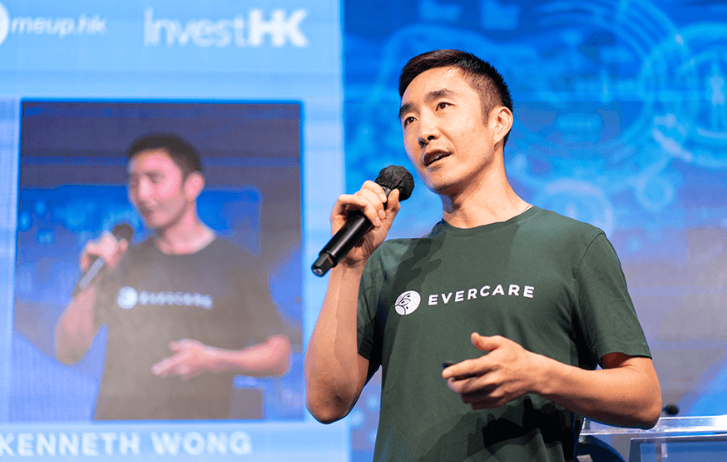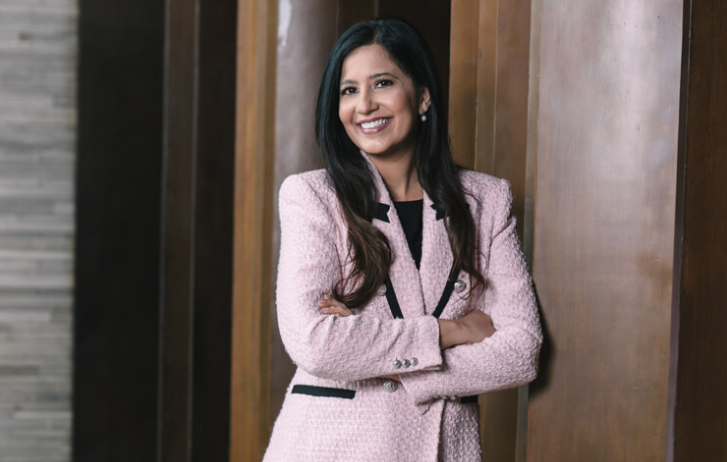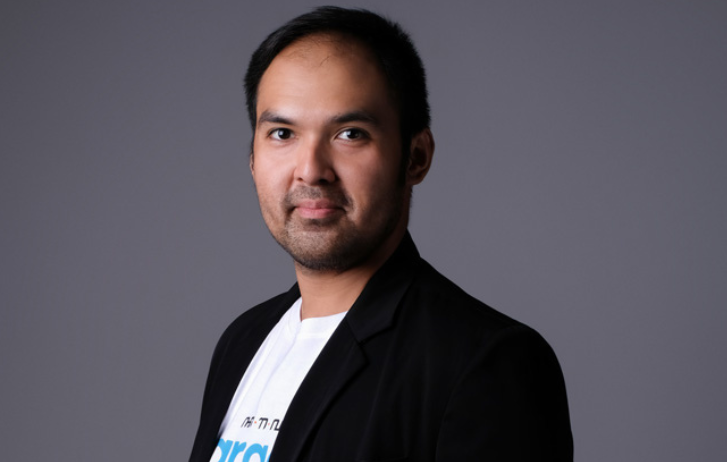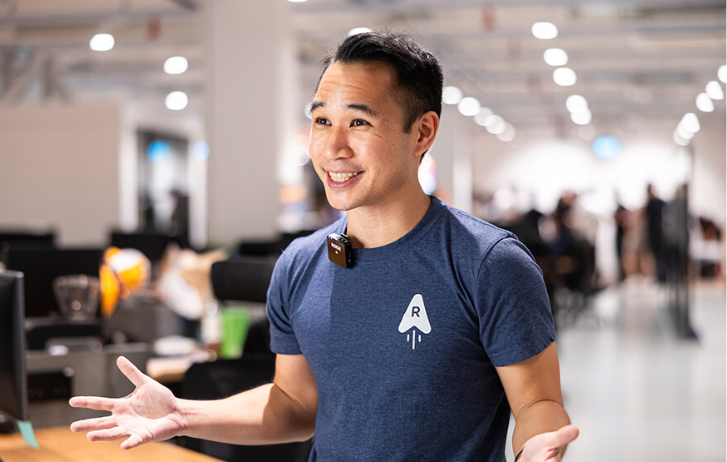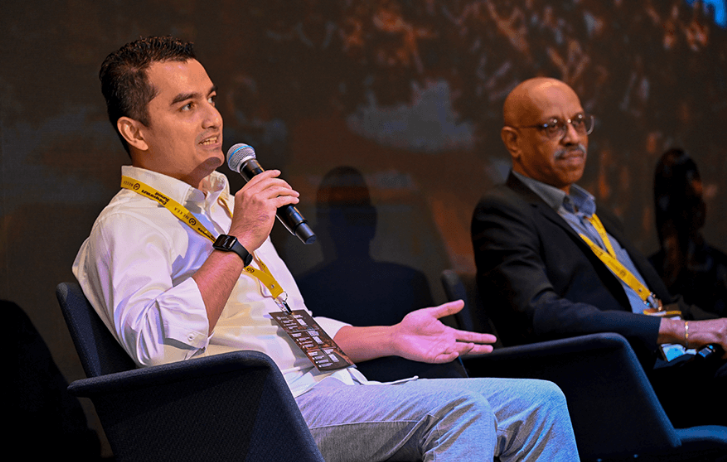
13 APAC Leaders Reveal The Biggest Mistakes They’ve Made
By FedEx | September 25, 2025
Explore the untold side of success with 13 APAC business leaders as they share their most challenging failures – from financial crises to failed expansions. Here's how they turned setbacks into stepping stones for growth and resilience.
No one escapes failure – not a first-time founder or a seasoned business veteran. In the world of entrepreneurship, failure can be seen as a rite of passage. It’s one of the most powerful teachers, offering lessons that no success story ever could.
As Bill Gates, one of the richest men in the world, says in his book, Business @ the Speed of Thought, “Once you embrace unpleasant news not as a negative but as evidence of a need for change, you aren’t defeated by it. You’re learning from it. It’s all in how you approach failures.”
From near-shutdowns and failed market entries to painful layoffs and strategic missteps, these 13 business leaders across Asia Pacific share some of the hardest moments of their careers – and what they learned on the other side. Their candid reflections are a reminder that success is rarely straightforward, often forged through setbacks, recoveries, and hard-won insights.
Kenneth Wong, Co-Founder and CEO of Evercare Health
I came very close to shutting down Evercare after the first few years. I had put 50% of my life savings into the business, and lost all of it. We were bleeding cash, unable to attract sufficient users to our platform. Without sufficient scale, we also lacked the track record necessary to be considered for any partnerships with other healthcare industry stakeholders.
I had embarked on the entrepreneurship journey full of optimism and excitement, but in reality, I was days away from running out of cash. I was a first-time founder, working in an industry I had no experience in. To make matters worse, I had brought my wife along with me on this seemingly reckless journey. By any conventional measure, I had failed on an epic scale.
I had put 50% of my life savings into the business, and lost all of it.
That said, I didn’t have time to dwell on my failure; I had a decision to make. Do I invest the remaining 50% of my savings? Or do I shut down Evercare and look for a proper job?
I still believed strongly in our mission to empower the elderly to live at home. I still wouldn’t have used any of the existing service providers on the market for my own family due to quality issues. And importantly, I still had the full support of my wife to stay committed to our entrepreneurial journey. So we made the decision to double down to keep the business afloat.
Over the years, I’ve learned that the entrepreneurial journey is not linear. Growth almost always lies in the plateaus. The question is whether you can stay committed to experience the inflection points.
Roshni Mahtani Cheung, Founder and Group CEO of The Parentinc
I really thought that we could succeed by launching in India back in 2015. India was a huge market, and still is, for the mother and child sector. We ran the Indusparent for over three years, pouring resources into building a local team, localizing content, building community engagement, and tailoring our offerings to the unique needs of the Indian audience.
Despite our best efforts, we faced challenges that we had underestimated – one being the existing competitors that already had an iron grip on the market.
The experience reinforced that success in one market does not guarantee a seamless transition to another, even within the same industry sector. I apply the lessons learned from our foray into the Indian market to any future expansion strategies.
Rahul Nambiar, Co-Founder and CEO of Botsync
In the very early stages of our business, we split our team into two locations, Singapore and Bangalore. This was done to minimize expenses and extend our runway as we built the product.
Being naïve first-time founders, we prioritized cost control. However, for a start-up, execution pace is more critical for survival than saving 10% to 20% of your operations.
For a start-up, execution pace is more critical for survival than saving 10% to 20% of your operations.
What we didn’t factor into that decision were the miscommunications and drop in execution pace that resulted from not having the core team together. While many types of companies can be built remotely, a robotics company isn’t one of them. This was a key lesson that we’ve carried forward in all we do.
Ethan Ang, Founder and Managing Director of NodeFlair
Starting our Vietnam operations and shutting it down one year later. We were prioritizing top line and market share, and were aggressive in our growth and expansion into new markets. We expanded the Vietnam team rapidly.
Unfortunately, shortly after we launched, the market conditions went south. We knew it was unsustainable, and we had to make a decision fast before we ran out of cash. It was a painful and highly unpopular decision, with many unhappy people.
But if I were to cave to general opinions and sentiments, I wouldn’t be here giving this interview now. Being a leader is not a popularity contest. It’s about making the right decisions, no matter how difficult.
Karen Kim, CEO of Human Managed
In the early days, before we established trust with our first customers and had a working platform, we signed contracts with flexible payment terms for customers, such as payment upon delivery, milestone payments, or extended payment due dates.
In hindsight, we were too eager to show value without considering the risks thoroughly. We needed to be more confident in asking for payment to cover operating costs, especially as we had proven our capabilities.
Our cash flow was affected by scenarios such as retroactive payments, disagreements on outputs, and extended proof of concepts without contract. We did more work than intended for free without proper measurements and processes.
While flexible payment terms were necessary to generate revenue, we should have acted faster to correct new contracts with terms to decrease business risk.
Lee Haoming, CEO of Louken Group
One of my most valuable failures came when I co-founded Artbox Singapore. Although the event eventually became a major success, drawing over 700,000 visitors, the first attempt was riddled with challenges.
We underestimated the complexity of managing such a large-scale event, and it quickly became clear that we weren’t fully prepared for the logistical and operational issues that came our way. From crowd control to vendor management, everything was a learning curve.
While it was a stressful experience, it taught me the importance of meticulous planning and operational excellence. No matter how exciting or innovative a project is, the details matter.
The experience also reinforced the importance of being flexible and adaptable in the face of challenges. Failure is inevitable, but how you respond to it ultimately defines your success. That experience at Artbox became one of the most formative influences on my approach to leadership and strategic planning at Louken. I always say: In life, there’s no loss when you try – only win or learn.
Ryan Manafe, Founder and CEO of Dagangan
Initially, we operated in a market with challenging profitability. Our margins were lower than desired, which significantly impacted our operational costs. This limited our ability to innovate and make room for growth.
Despite this, we believed in the potential of our business. We undertook significant operations improvements and doubled our margins as a result.
Failure taught us the importance of perseverance and continuous improvement. It pushed us to optimize our operations, explore innovative revenue streams, and ultimately strengthen our business model. Today, we are more resilient and better positioned for long-term success.
Reza Behnam, Founder and CEO of Digital Direction
It’s hard to name my greatest business failure, as I’ve had quite a few. However, the ones I learned most from are the ones that I could have prevented. I cherish the lessons I’ve learned from preventable mistakes as I had agency in those situations.
One mistake is engaging in business with friends or family without having full clarity on expectations, leadership style, process or goals.
One such mistake is engaging in business with friends or family without having full clarity on expectations, leadership style, process or goals. I’ve been in situations where my friendships have been overtaxed as a result of lack of understanding or empathy, or simply as a result of differences in style. I’ve learned to be incredibly cautious, patient and understanding in these situations as there’s a lot more at risk than just the business.
Greg Mittman, Co-Founder and CEO of HySights
Building a business is never a straight line to success. You set ambitious goals, aim high, and sometimes fall short. But every setback is an opportunity to recalibrate and uncover new possibilities.
Failure is only a failure if you don’t learn from it. Some of the biggest lessons and most valuable pivots come from things that didn’t go as planned. Maybe it’s an overused cliche, but it’s true.
Anna Vanessa Haotanto, Founder and CEO of Zora Health
One of my early ventures didn’t take off as expected. I assumed a great product was enough, but I underestimated the importance of distribution and go-to-market strategy. The experience taught me that no matter how good your solution is, if you don’t have the right channels, partnerships, and market positioning, it won’t scale.
Now, I prioritize execution and distribution just as much as the product itself. It was a tough lesson, but it shaped how I build businesses today.
Neo Kai Yuan, Former Founder of Rocket Academy
Expanding operations too quickly in anticipation of growth, failing to invest adequately in growth, then letting go of good people when we could not reach our growth goals.
In 2021, Rocket Academy was on a growth spurt. We had raised USD 1 million to enable us to grow faster. I expected our growth trajectory to continue and hired multiple new team members.
By late 2021, cracks started to appear. Growth was not continuing as expected. We had communication challenges between certain colleagues. Some colleagues were upset at how we handled an operational mistake. Having a larger team also meant that individually, we were spending more time in communication and less time delivering for our students.
In the first half of 2022, solving these problems meant parting ways with about half of the team we hired. This was one of my greatest trials as a founder so far. It was painful to admit my mistakes, but necessary for the company to progress and for the team to recover.
In early 2023, we had to conduct another round of layoffs to balance the books and transition from a loss-making VC-backed business to a profitable bootstrapped business. It was just as painful, and I hope that is the last time we will have to make such a transition.
These experiences have led me to be more thoughtful and intentional about hiring, and I hope this will allow our team to flourish in the years to come.
Johary Mustapha, Founder and CEO of Forest Interactive
As a CEO, the realization that when a product or service falters, people are quick to pass judgment. They may even abandon ship.
However, I've come to value instances like that as they have taught me key lessons in resilience and adaptability. Instead of accepting defeat, I’ve learned the importance of persevering, tweaking or adjusting our offerings to meet demand.
It's easy to abandon a struggling project, but true success requires persistence and a belief in the potential for improvement.
You need patience in the face of failure. It's easy to abandon a struggling project, but true success requires persistence and a belief in the potential for improvement. Embracing failure as a temporary setback rather than a definitive defeat has been a cornerstone of my leadership philosophy.
Failure also taught me the art of calculated risk-taking. By viewing setbacks as opportunities for growth and improvement, we’ve been able to turn adversity into advantage. Our products aren’t always perfect from the start, but with the right adjustments and a determined team, we can align them for success. Without failure, you can’t truly appreciate the joy of success.
Theodoric Chew, Co-Founder and CEO of Intellect
The many failed attempts in my younger years to start businesses allowed me to understand myself more deeply. They taught me what I’m good at, and importantly, what I’m not so good at. I’ve seen that sometimes the best advice won’t resonate until someone has actually experienced it for themselves.
Personally, I had never been in healthcare or done B2B sales prior to Intellect, so everything was a first for me and a massively steep learning curve. We’ve had many great partners, advisors, and team members who have unlocked different pieces of the puzzle that I had never considered. It all comes down to being open-minded and willing to learn.
SHARE THIS STORY
- Where Do Old Planes Go When They Retire?
- How To Ship A Giant Panda
- What’s So Dangerous About Coconuts? Your Guide To Dangerous Goods Logistics
- Generative AI: A New Frontier
- 85% Of APAC Businesses Plan To Expand Into Europe, According To New FedEx Report
- The Rise Of Intra-Asia Trade: Opportunities In The China-Southeast Asia Corridor
Sign up now and save on your shipping rates!
Sign up now and earn discounts by shipping instantly with FedEx Ship ManagerTM at fedex.com.
Recommended For You

Empathy: The Most Important Leadership Skill
As hybrid workplace culture is increasingly prioritized, many successful businesses are driven by empathetic and compassionate leadership.
Read More
Women Of FedEx Challenging Bias For The Better
From frontliners to aviation security and pilots, women at FedEx are making an impact across the organization and challenging gender biases.
Read More
How To Win Gen Z Over With The Ideal Workplace
By 2025 Gen Z will represent one-third of the global workforce. Discover four key elements to help employers and companies understand what Gen Z want.
Read More